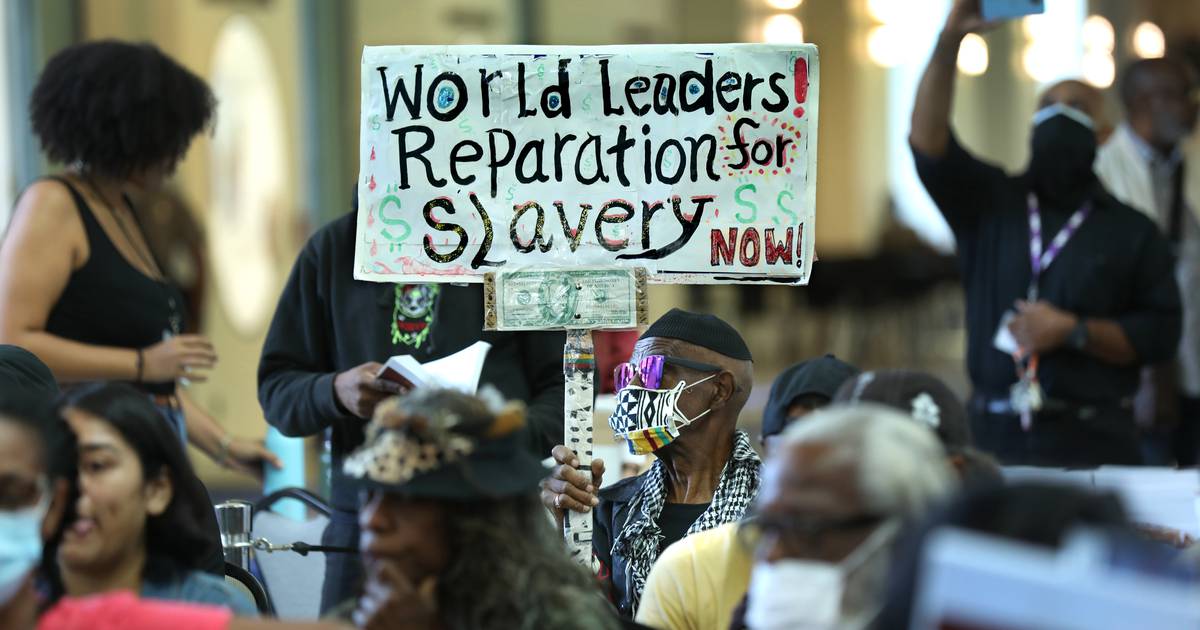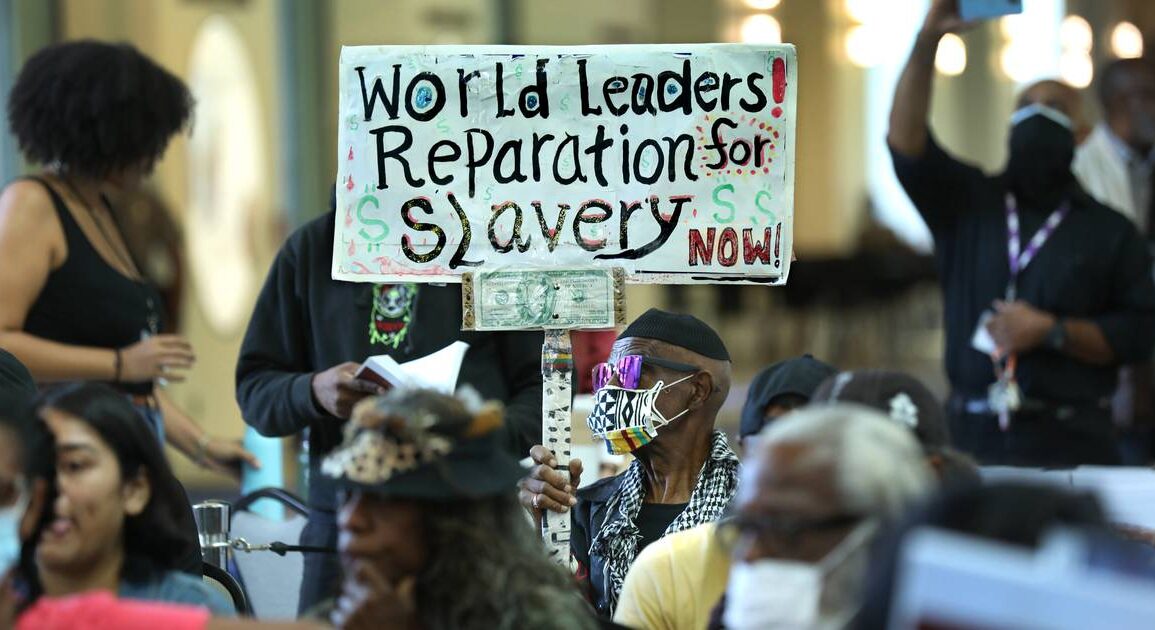
Since my commentary in favor of reparations for Black Americans was published in The Baltimore Sun a few weeks ago (”Tax the wealthy to pay for reparations,” June 7), I have received many more responses than I usually get. Aside from a few blatantly racist comments, I’ve mostly received comments expressing outright agreement or thoughtful responses that express genuine consternation as to why reparations should be made to African Americans. I understand this latter confusion as our country has done a particularly good job of vilifying people of different nationalities and races at various times in our history.
For example, Chinese Americans suffered from discrimination for many decades, and Japanese Americans were literally held captive in internment camps during World War II. Hispanic and Jewish Americans have suffered widespread prejudice, and Indigenous Americans have had their land and many aspects of their culture stolen from them. And, at various times in just the past century, Italian Americans, Irish Americans and those hailing from a variety of nations have also been the target of hate, demonstrated both in word and action.
However, African Americans have borne the weight of centuries of maltreatment, the accumulated effects of which are measurably more egregious than that suffered by virtually any other group of Americans (although reparations aren’t precluded for other groups). Indeed, our grossly inequitable system of toxic capitalism has led directly to extremely negative consequences for Black individuals.
In this toxic capitalistic structure, an infinitesimally small number of extremely rich individuals control a large percentage of the wealth in the United States. The rationale for reparations for Black Americans stems directly from the burdens borne predominantly by those individuals to support such a system, in all its aspects. Although some African Americans are lawyers, physicians and businesspeople, for far too many, these professions are out of their reach. This is not to say that African Americans are purposely not trying to pull themselves up by their bootstraps, as some groups claim accusingly. Rather, for many Black Americans, due to centuries of injustice and extreme prejudice, they don’t have any of those bootstraps to pull up.
Part of the purpose of reparations is to provide these bootstraps. While African Americans would receive reparations for the egregious wrongs that have been committed against them, all of us, aside from the immensely wealthy, will then live in a much more egalitarian world. What forms might reparations take? Contrary to the comments of some opponents, many reparations plans don’t propose direct payments of cash to African Americans, but rather more targeted types of restitution.
For example, reparations could come in the form of free state college tuition. This would eventually lead to an equal proportion of Black people getting degrees as whites and Asians, creating a more level playing field in the search for jobs. Should equity in school funding be another form of reparations, more Black children will be able to obtain a high quality pre-K through 12th grade education that gets them prepared for college.
Likewise, if reparations came in the form of investments in Black-owned businesses, it would result in a significant closing of the wealth gap. And, if reparations come in the form of restitution for the inability to buy houses in more desirable areas, due to a practice known as redlining, this form of reparation could go a long way toward ensuring true housing equality.
Though the practical aspects of reparations still need to be worked out, taken together, these and other forms of reparations can jointly create more equality in our country. The possibility to create a significantly more egalitarian societal structure through reparations could give young people, and all U.S. citizens, the ability to work for a much more level playing field, rather than feeling there’s little they can do to combat our system of toxic capitalism.
As Robert F. Kennedy said, in the very conflict-ridden late 1960s while pushing for a national reconciliation and a shared sense of responsibility, “When one part of the United States does badly, it also has an effect on the rest of the United States.”
Reparations could help to improve the system for everyone.
— Peter Beilenson, Baltimore
The writer is a physician and former Baltimore City health commissioner.
Add your voice: Respond to this piece or other Sun content by submitting your own letter.


